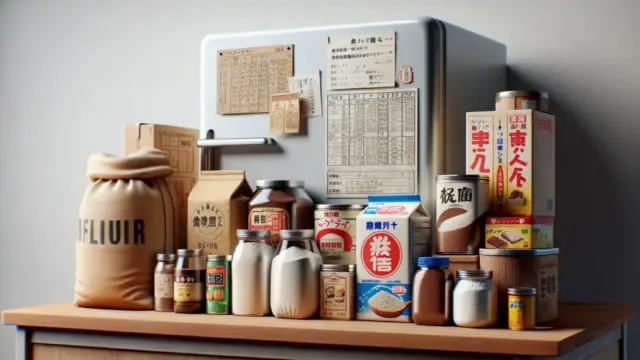Kenya is renowned for its vibrant coffee culture, and diving into the world of Kenyan coffee is an adventure in itself. With its unique flavor profiles and rich history, there’s so much to explore. Whether you’re a seasoned coffee enthusiast or just starting your journey, understanding the varieties of Kenyan coffee can enhance your brewing experience.
In this article, we’ll take a closer look at what makes Kenyan coffee special. From the fascinating historical context to the different types of beans grown in various regions, there’s a wealth of knowledge to uncover. You’ll soon find out why Kenyan coffee is celebrated around the globe for its exquisite taste and aroma.
As we delve deeper, we’ll discuss the nuances of roasting and brewing methods that can bring out the best flavors in each cup. Knowing how to brew your coffee just right can make all the difference in savoring that perfect sip.
Finally, we’ll share tips on how to truly enjoy your Kenyan coffee, including tasting notes and storage suggestions. Get ready to elevate your coffee game and discover your perfect brew!
- Explore the rich history and cultural significance of Kenyan coffee.
- Learn about the main types of coffee beans and their regional characteristics.
- Discover roasting and brewing methods that enhance your coffee experience.
Basic Knowledge of Kenyan Coffee
What is Kenyan Coffee?
Kenyan coffee is not just a beverage; it represents a unique experience that combines flavor, aroma, and a touch of cultural heritage. Grown at high altitudes in volcanic soil, these beans are known for their bright acidity and full-bodied richness. The distinct taste can be attributed to the specific varieties cultivated in Kenya, with Arabica being the most prominent.
The Kenyan coffee landscape is diverse, with each region offering its own signature profile. For instance, coffees from Nyeri are often fruity and floral, while those from Kiambu are known for their rich chocolate notes. Exploring these varieties can truly enhance your appreciation for coffee and allow you to discover your personal favorites.
- Kenyan coffee is primarily Arabica.
- High altitudes and volcanic soil contribute to its flavor.
- Different regions produce unique taste profiles.
Its Historical and Cultural Background
The journey of Kenyan coffee dates back to the late 19th century when it was introduced by British colonizers. Since then, it has evolved into a significant aspect of Kenyan culture and economy. Coffee farming has become a way of life for many families, passed down through generations. This rich history makes every cup of Kenyan coffee a reflection of the land and its people.
In addition, coffee plays a vital role in social gatherings and ceremonies. It’s common for friends and family to come together over a freshly brewed pot, sharing stories and enjoying each other’s company. This communal aspect of coffee drinking adds another layer to the experience, making it more than just a drink but a means of connection.
As we continue to explore Kenyan coffee, you’ll appreciate not only its unique flavors but also the cultural significance that accompanies each sip. Understanding its history and the stories behind each bean can enrich your coffee journey and inspire a deeper connection with this beloved beverage.

If you’re intrigued by the unique flavor profiles of Kenyan coffee, you might also find our article on What Are Arabica Beans? Discover How to Choose and Enjoy Coffee Like a Pro! particularly engaging. This piece delves into the characteristics of Arabica beans, which are a significant part of the coffee experience in Kenya, enhancing your understanding and appreciation of this beloved beverage.
- Coffee was introduced to Kenya in the late 19th century.
- It is an important part of the Kenyan culture and economy.
- Social gatherings often center around coffee drinking.
Varieties of Kenyan Coffee
Main Types of Coffee Beans
When it comes to Kenyan coffee, understanding the main types of coffee beans is essential to appreciating its diverse flavors. The two primary varieties grown in Kenya are Arabica and Robusta, with Arabica being the most celebrated for its quality. Arabica beans are known for their bright acidity and complex flavor profiles, making them a favorite among coffee lovers.
The Arabica beans thrive in the high altitudes of Kenya, where the cool climate and rich volcanic soil create ideal growing conditions. This variety exhibits a wide range of flavors, often described as fruity, floral, or even wine-like, depending on the region where it is grown. As you explore the various types of Kenyan coffee, you’ll notice how each bean offers a distinct taste experience.
Robusta, on the other hand, is less common in Kenya but still plays a role in the coffee landscape. These beans tend to be stronger and more bitter, with a higher caffeine content. While they might not be as refined as Arabica, they are often used in espresso blends to add body and depth.
- The primary coffee bean varieties in Kenya are Arabica and Robusta.
- Arabica is known for its bright acidity and complex flavors.
- Robusta beans are stronger and more bitter, often used in blends.
Regional Characteristics
As we dive deeper into the regional characteristics of Kenyan coffee, you’ll find that each area brings its unique touch to the beans. For example, the Nyeri region is famous for its fruity and floral notes, which stand out in every cup. Coffee from this area often has a vibrant acidity, making it a favorite for those who enjoy a lively flavor.
In contrast, the Kiambu region offers a different experience with its rich chocolate undertones. The beans from this area are typically smoother, appealing to those who prefer a more rounded taste. This diversity across regions highlights how geography plays a crucial role in shaping the flavor profiles of Kenyan coffee.
Similarly, the Meru region contributes its own distinct characteristics, often showcasing a balance of sweetness and acidity. Exploring these regional differences not only enhances your appreciation for Kenyan coffee but also invites you to experiment with various brewing methods to bring out the best in each type.
- Nyeri coffee is known for fruity and floral notes.
- Kiambu coffee offers rich chocolate undertones.
- Meru coffee strikes a balance between sweetness and acidity.
Roasting and Brewing Methods
Differences in Roasting Methods
Roasting is a crucial step in bringing out the unique flavors of Kenyan coffee, and the method you choose can significantly impact the final taste. There are various roasting techniques, each with its own distinct approach. Light roasting preserves the bright acidity and fruity notes that Kenyan coffee is known for. This method allows the natural flavors to shine, making it a popular choice for those who appreciate the delicate nuances of the beans.
On the other hand, medium and dark roasts can introduce different flavor profiles. While medium roasts maintain some of the original characteristics, they start to develop deeper caramelization and chocolate undertones. Dark roasting, however, can overpower the natural flavors, resulting in a bolder taste that may appeal to those who prefer a stronger cup. Understanding these differences can help you choose the roasting method that aligns with your personal taste preferences.
- Light roasts preserve bright acidity and fruity notes.
- Medium roasts develop deeper caramelization and chocolate flavors.
- Dark roasts can overpower natural flavors but offer a bolder taste.
How to Choose Brewing Methods
Selecting the right brewing method is just as important as the roasting process when it comes to enjoying Kenyan coffee. Each brewing technique can bring out different aspects of the coffee, enhancing your overall experience. For instance, pour-over methods allow for precise control over water temperature and extraction time, resulting in a clean and vibrant cup that showcases the coffee’s unique flavors.
If you prefer a more robust experience, French press might be the way to go. This method allows the coffee grounds to steep in hot water, creating a fuller body and richer taste. However, it might mask some of the delicate notes present in lighter roasts. Espresso is another popular option, known for its concentrated flavor and creamy texture. It’s a fantastic way to experience the intensity of Kenyan coffee, especially when using high-quality beans.
Additionally, consider experimenting with cold brew for a refreshing take on your favorite Kenyan coffee. This method produces a smoother, less acidic drink that can be enjoyed over ice, perfect for warm days. No matter your preference, exploring different brewing methods can elevate your coffee journey and help you find the perfect way to enjoy the vibrant flavors of Kenyan coffee.
- Pour-over methods highlight the coffee’s unique flavors.
- French press creates a fuller body and richer taste.
- Espresso offers concentrated flavor and creamy texture.
- Cold brew provides a refreshing, smooth drink.
How to Enjoy Kenyan Coffee
Tasting Tips
Now that you have a solid understanding of the varieties of Kenyan coffee, it’s time to dive into how to truly enjoy it. Tasting coffee is an experience that goes beyond just sipping; it involves engaging your senses and appreciating the flavors present in each cup. To start, try to take in the aroma before you take your first sip. A deep inhale can reveal hints of fruitiness, floral notes, or even chocolate, depending on the coffee’s origin.
As you take your first sip, pay attention to the initial taste that hits your palate. This is often referred to as the “front” of the flavor. Take your time and let the coffee linger in your mouth for a moment. Notice how it evolves; does it become sweeter? Is there a hint of acidity that balances the overall flavor? Engaging in this mindful tasting practice can greatly enhance your appreciation for Kenyan coffee.
- Take in the aroma before sipping.
- Focus on the initial taste and how it evolves.
- Engage your senses to fully enjoy the experience.
Storage Methods and Recommended Ways to Drink
Proper storage is key to maintaining the freshness and quality of your Kenyan coffee. To keep your beans at their best, store them in an airtight container in a cool, dark place. Avoid exposing them to air, light, and moisture, as these elements can lead to loss of flavor and aroma. If you buy coffee in bulk, consider freezing portions to preserve their freshness for longer periods.
When it comes to enjoying your coffee, there are various ways to savor each cup. If you want to highlight the bright acidity and fruity notes, opt for a pour-over method. This technique allows for precise control over the brewing process, ensuring you capture the unique flavors. On the other hand, if you’re in the mood for something richer, a French press can provide a fuller body, making the experience more indulgent.
Experimenting with different flavor pairings can also elevate your coffee experience. For instance, pairing a fruity Kenyan coffee with a light pastry can create a delightful contrast that enhances both elements. Alternatively, if you prefer a more robust cup, enjoy your coffee alongside dark chocolate or a nutty snack.
No matter how you choose to enjoy your coffee, the key is to remain open to the various flavors and sensations that Kenyan coffee has to offer. By embracing the tasting process and experimenting with different brewing and pairing methods, you’ll uncover a world of flavor that makes every cup a unique experience.

If you’re intrigued by the world of coffee and want to explore more about unique flavors, you might find our article on Why Colombian Coffee is Loved Around the World particularly enlightening. It delves into the distinct characteristics of Colombian coffee, offering insights that can complement your appreciation of Kenyan coffee.
- Store beans in an airtight container in a cool, dark place.
- Experiment with different brewing methods for varied flavors.
- Pair coffee with foods that complement its unique characteristics.
Summary
In exploring the world of Kenyan coffee, we’ve discovered its rich diversity and the unique flavors that each variety offers. From the vibrant acidity of Arabica beans to the chocolate notes found in Kiambu coffees, there’s something for every coffee lover to enjoy. Understanding the historical and cultural significance behind each cup not only enhances your appreciation but also connects you to the land and its people.
As you continue your coffee journey, remember the importance of roasting and brewing methods in bringing out the best flavors. Whether you prefer a light pour-over or a rich French press, experimenting with different techniques will deepen your understanding and enjoyment of Kenyan coffee.
- Kenyan coffee is primarily Arabica, known for its bright acidity and complex flavors.
- Each region offers unique taste profiles, such as fruity notes from Nyeri and chocolate undertones from Kiambu.
- Proper storage and mindful brewing methods are essential to experiencing the vibrant flavors of Kenyan coffee.
We’d love to hear your thoughts on this journey through Kenyan coffee! What’s your favorite variety or brewing method? Feel free to share your experiences in the comments below.















































Comment